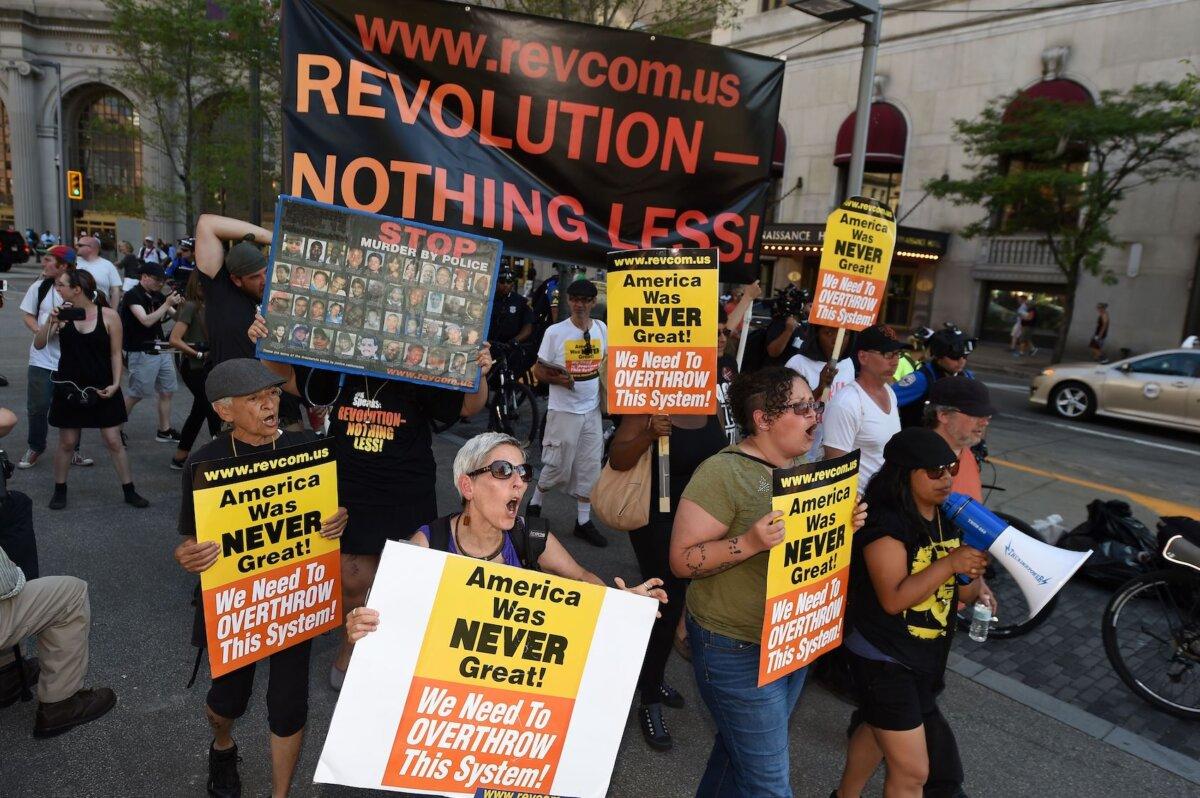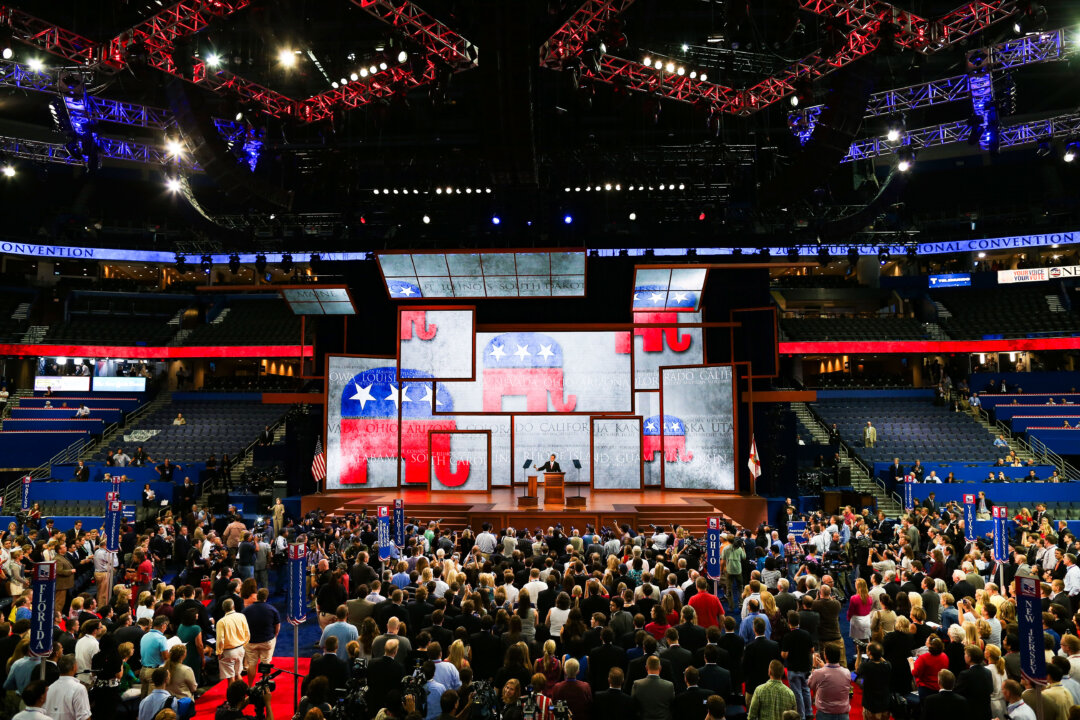RNC leaders have asked protests to be held further back from the venue amid safety concerns.
The City of Milwaukee has been sued by a coalition of protest groups who say their rights to free speech and assembly are being violated by a special event ordinance that limits their ability to get close enough to the venue of the Republican National Convention (RNC) so that they can be seen and heard by convention attendees as they air their grievances.
The complaint against Milwaukee and several top city officials was filed on June 5 at the U.S. District Court for the Eastern District of Wisconsin by the American Civil Liberties Union (ACLU) on behalf of the Coalition to March on the RNC, a coalition made up of some six dozen organizations expressing a wide variety of concerns.
The groups’ key contention is that Milwaukee’s special event ordinance creates a security zone around the RNC venue that imposes various restrictions that make it harder for them to get their message across to convention attendees. For instance, the ordinance requires protest groups to apply for a special permit to march or demonstrate within the security footprint and it limits what items they can bring into the zone.
The protest group coalition alleges that some provisions of the ordinance violate its members’ First and Fourteenth Amendment rights.
“We call on city leaders to amend this ordinance to ensure it no longer unconstitutionally infringes on First Amendment rights and respects the rights of all individuals to peacefully protest and engage in political expression,” ACLU Wisconsin legal director Ryan Cox said in a statement.
The ordinance also gives Milwaukee officials the power to designate parade routes days or weeks before the convention, which the protest coalition says city officials have still not done. The protest groups’ repeated parade permit applications have also gone unanswered, per the complaint, which seeks to force city officials to grant a permit for a parade location close to the convention.
A request for comment on the lawsuit sent to the Milwaukee mayor’s office was not immediately returned.
Milwaukee mayor Cavalier Johnson’s spokesman Jeff Fleming told The Associated Press that the protest route and other details regarding demonstration sites haven’t yet been made public but that the city would give protesters a chance to voice their concerns.
“Milwaukee has few restrictions on demonstrations throughout the city—so if a group wants to hold up signs and chant on a street corner a few blocks from the convention location, the city will make reasonable accommodations,” he said.
Todd Steggerda, counsel for the RNC, sent a letter to the U.S. Secret Service in April, asking officials to keep protesters farther back from the convention venue than had been originally planned because the existing plan created “an elevated and untenable safety risk to the attending public.”
Secret Service Director Kimberly Cheatle said Thursday that security plans for the convention are still being finalized.Significant protests are expected at the July 15-18 convention, where former President Donald Trump is expected to become the party’s official 2024 nominee.
The protest coalition said in its complaint that it filed its first of three parade permit applications on April 12, 2023, for a route that “assures that marchers can be seen and heard by RNC attendees.”
A map indicates that the proposed route would pass in the vicinity of Fiserv Forum, where much of the RNC’s activities will take place.
The city replied by telling the protest coalition that their permit application was filed too early, so they filed other permit applications on Sept. 21, 2023, and Jan. 18, 2024. The coalition alleges that the city ignored both subsequent applications.
Then, on March 19, 2024, the city adopted the special event ordinance, which included the establishment of a 90-square-block security footprint, an area with limited pedestrian and vehicular access.

The ordinance requires that protesters apply for a special permit to be able to protest within the security footprint and, if the permit is granted, it only allows them to march along a specified route.
It also limits the type of items that can be carried into the zone and creates an additional area secured by tall fencing where only credentialed individuals can enter, along with just one “official speakers’ platform” with sound equipment provided and controlled by the city.
While the ordinance allows city officials to impose “restrictions designed to protect public safety, persons, and property,” it also acknowledges protesters’ right to demonstrate and promises to let assemblies and parades take place “near the Convention so they may be seen and heard.”
The groups argue, however, that the ordinance is “unconstitutionally vague” and gives city officials too much leeway to impose restrictions that limit demonstrators’ ability to be seen and heard by RNC attendees, in violation of the First Amendment and the Due Process Clause of the Fourteenth Amendment of the U.S. Constitution.
“The Coalition brings this suit to vindicate its rights to engage in First Amendment expression activity in the traditional public forum of the streets in a manner where it can be seen and heard by attendees of the Convention,” their complaint reads.
The coalition wants the court to declare that Milwaukee unconstitutionally failed to grant the group’s application for a parade permit, and it asks that the ordinance be declared unconstitutional.
The protesters also want the court to force the city to grant a parade permit in a location where they can be seen and heard by RNC attendees.
Protesters have raised similar concerns and filed lawsuits challenging restrictions around the Democratic National Convention in Chicago in August.

